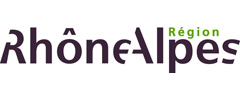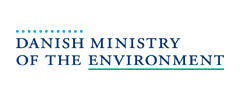Live from Copenhagen: 200 NGOs in Action in Asia & Africa for Sustainable Energy
Joint Side Event by WECF & Inforse at the Bella Center in Copenhagen
14.12.2009 |WECF News

WECF's Sabine Bock chairs side event during COP 15 at the Bella Center, Copenhagen
Chairpersons: Roque Pedace (INFORSE) & Sabine Bock (WECF)
- Secou Sarr, ENDA-Tier Monde, Senegal
- Mabule Mokhine, Earthlife Africa
- Timothy Byakola, Climate Development Initiative (CDI), Uganda
- Ganesh Ram Shresta, Centre for Rural Technology, Nepal
- Raymond Myles, INSEDA, India
- Zareen Myles, Women Action for Development (WAFD), India
- Nurzat Abdyrasulova, Unison, Kyrgystan
- Keti Kirian, Green Movement of Georgia
- Yahaya Ahmed, DARE, Nigeria
Solutions that, for example, not only reduce greenhouse gases but also make households able to benefit from them. Emissions are cut by reducing coal use, reducing biomass use - that reduces deforestation - and by using biogas plants known for their ability to reduce methane emissions from manure. Those activities earn greenhouse gas credits, but are unfortunately struggling with the CDM rules.
Emphasis was put on the special challenges household and community level projects under the Clean Development Mechanism (CDM) have to face.
These kind of projects are very important, because they can provide a much needed contribution to improving livelihoods in poor communities. They are better adapted to the local realities and are able to reconcile the needs of reducing poverty whilst mitigating climate change.
Speeches were held by Sabine Bock, WECF, Secou Sarr, ENDA-Tier Monde, Senegal, Mabule Mokhine, Earthlife Africa, Ganesh Ram Shresta, Centre for Rural Technology, Nepal, Zareen Myles, Women Action for Development (WAFD), India, Nurzat Abdyrasulova, Unison, Kyrgystan, Keti Kirian, Green Movement of Georgia and many others.
The speakers expressed the need to invest more in decentralized energy systems. Policies to accelerate rural energy initiatives should be directed at economically productive activities and small-scale enterprises development. Also the government should work with financial institutions to develop new and innovative financing models. The jointly expressed aim is to develop, promote and disseminate environmentally sound and climate friendly energy technologies in poorer countries.
Women are main target
Women were seen as the main target in reducing poverty whilst mitigating climate change. Zareen Myles from Women Action for Development in India stated that „women suffer the most from climate change over there.“ Their tragedy has increased as women have to do many more trips for collecting water and food, and also other work has become a lot more.But women also seem to be primary beneficiaries in projects of renewable energies, because they are always at the frontline of all these activites. As Secou Sarr from the sengalesian NGO ENDA-Tier Monde, said: „Men are going out to drink. To bring the message down, you need to approach women.“ He showed that it is necessary to support women via microfinance to improve life quality for women in rural areas.
Unjust distribution of CDM
Another issue of the event was the unfair distribution of CDM projects. China has the main share of CDM projects , followed by India and Brasil. For the countries remaining there is only a little amount of CDM possibilities left. Sabine Bock from WECF is looking for a way to provide more access for household and community level projects. As a precondition upfront funding would be needed as high transaction costs are a primary feature of these kind of projects.Also the approval process is complicated and time consuming as CDM institutions are very slow, because they are not used to household and community level projects.
Related News
Meet the Winners of the Gender Just Climate Solutions Award at COP24
On the 70th anniversary of the Universal Declaration of Human Rights, we awarded Gender Just Climate Solutions Winners at the climate negotiations in Katowice, Poland
11.12.2018
Invitation: Gender Just Climate Solutions Award 2018
10 December, COP24 Katowice
04.12.2018
Getting to the Future We Want
4-7 November, Brussels: European Environmental Bureau’s (EEB) Annual Conference
12.11.2018
GoodFood4All
WECF and partners all over Europe start GoodFood4All Campaign
06.11.2018
#Ruralwomen: join our Women2030 campaign!
15.10.2018






































